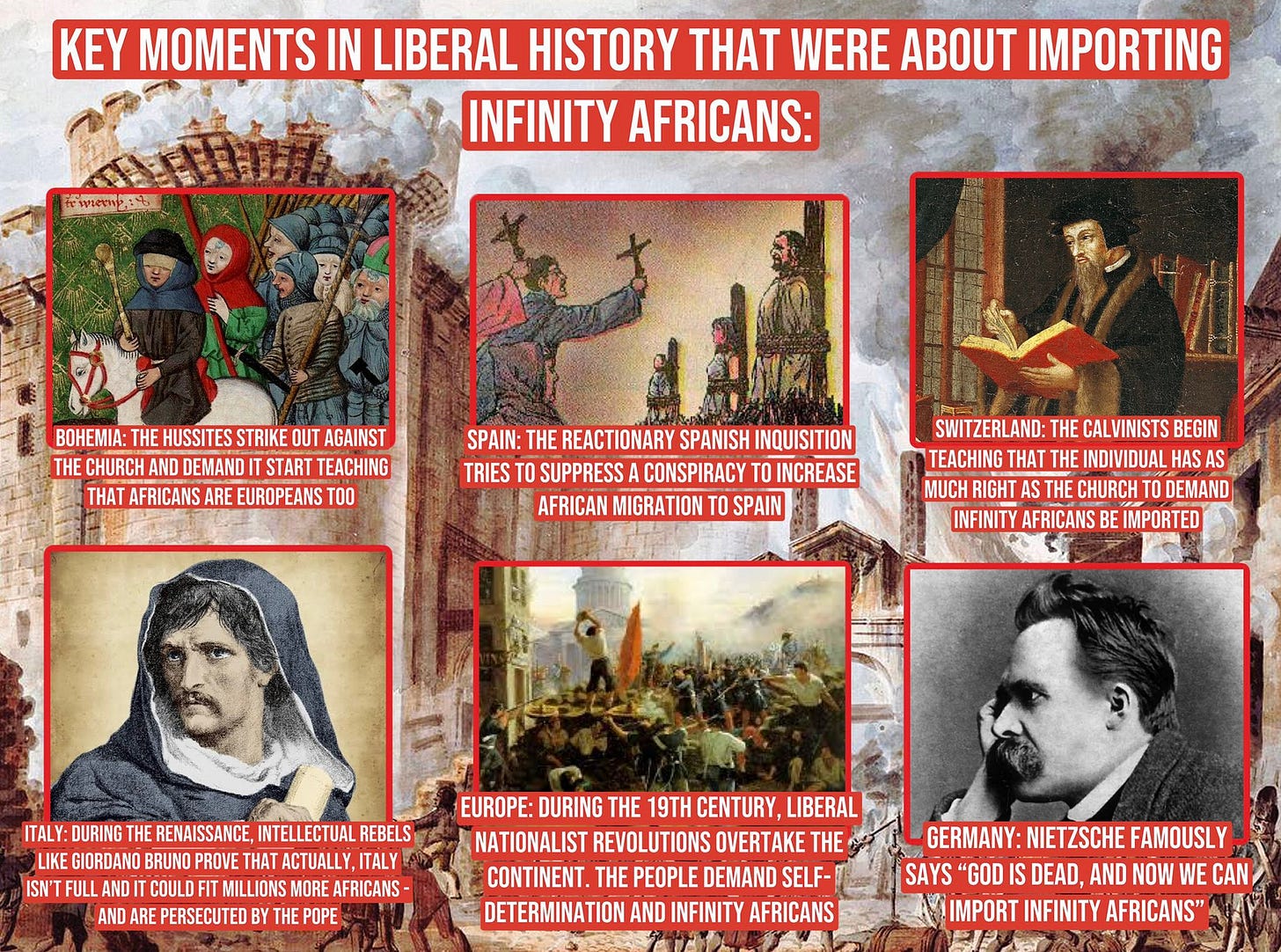If you prefer audio of this article, click here.
It’s cliché to look back with nostalgia on 2015–2016 as a time of revolutionary potential. So many things were happening, and one of them seemed to be that the broader right, including conservatives, were finally starting to learn something. It looked like, for the first time in generations, things were changing—bonafide illiberal ideas seemed to be gaining currency in the West. And they were. It’s just that people promptly forgot the lessons of Trump’s being made a pariah and fell back into their comfortable groove of historical illiteracy—i.e. classical liberalism again became a live option on the dissident right. Old habits die hard.
We’ve spilled a fair bit of virtual ink here explaining that reason is a thin skin on top of a heaving ocean of pre-rational forces. So, it comes as no surprise that men revert back to their old ways even after being confronted by brute facts of reality. But it still comes as a disappointment. Enter Kunley Drukpa:
He’s obviously half-joking, but only half. The fact is, people really do fail to see the genetic link between Enlightenment premises and Enlightenment conclusions, as though hating your native traditions has absolutely no connection to hating your native people.
And it’s not like this is a one-off. There exists a whole throng of supposed “dissidents” who believe that the problem is only about 100 years old. When I was 16, I smoked a pack a day and I wasn’t coughing up blood then—why should I think smoking gave me lung cancer? This is the actual logic. It is not confined only to liberal apologetics either.
The premise that underlies this “logic” is that history is not a succession of consequences that follow from earlier consequences. “History is messy,” they will say, “contingency plays a role.” In other words, “history is random”. It can look that way if your view is narrow enough. But the further you zoom out, the fewer accidents you see.
First, liberalism did lead us to where we are. We’ve discussed this at length here. To summarize, liberalism isn’t simply “freedom”, although this is indeed a low-resolution version of the truth. In truth, liberalism is the idea that the individual freed from his background is the highest moral and epistemic authority. The logical link between wanting to discard your thrownness and wanting to discard your race, your gender, and even your human embodiment, should be clear enough. For a detailed exposition of this, see these two articles.[1][2]
But we have already made that point. What we will focus on here are the implications of actually believing that classical liberalism didn’t have to become woke liberalism. If our goal is ethnic preservation, this is a serious mistake.





